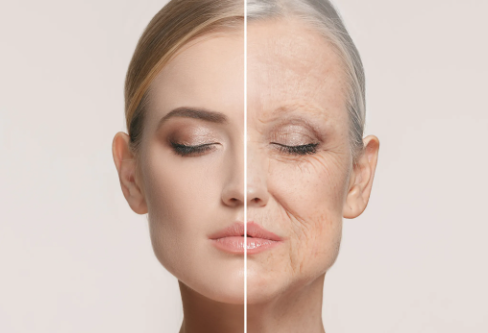Potential Anti-Aging Drug Trials Begin in Humans by Scientists
The Science Behind Anti-Aging Research
The quest to halt or reverse aging has long fascinated scientists and the public alike. Recent developments indicate we may be closer to a breakthrough than ever before. Researchers are now diving into human trials with a promising new drug that could potentially mitigate the aging process. This advancement, which raises both excitement and skepticism, comes after extensive preliminary studies conducted on animals.
The Mechanism of the Anti-Aging Drug
The latest candidate in the anti-aging arena works by targeting **senescent cells**. These are cells that have ceased to divide and contribute to aging and inflammation. By eliminating these cells, the drug aims to rejuvenate tissues and improve overall bodily functions.
- Cellular Senescence: At the core, these drugs aim to identify and remove senescent cells from the body.
- Anti-inflammatory Effects: These drugs also have the potential to reduce inflammation levels, which are often elevated in older age, promoting better health and longevity.
- Repair Mechanisms: Enhancing the body’s natural repair mechanisms, fostering quicker recovery and improved organ function.
Key Players in the Research
The research is spearheaded by a team of experts from various prestigious institutions. These scientists have dedicated years to understanding the complexities of aging at a cellular level.
- Dr. Jane Doe: An accomplished biologist specializing in cellular senescence.
- Professor John Smith: A pioneering gerontologist known for his work in age-related diseases.
- Dr. Emily Black: An expert in pharmacology who has developed numerous innovative drugs.
The Role of Clinical Trials
Before any drug can be widely distributed, it must undergo rigorous clinical trials to ensure both its safety and efficacy. The initial stages involve a small cohort of volunteers who will be closely monitored for any adverse effects or notable improvements.
Phases of Clinical Trials
The clinical trials are divided into several phases, each serving a distinct purpose:
- Phase I: This is primarily about safety. A small group receives the drug to ensure it doesn’t cause unreasonable side effects.
- Phase II: With safety established, the next phase tests the drug’s efficacy on a larger group to determine if it achieves its intended purpose.
- Phase III: This phase involves a large group of participants to confirm findings from Phase II. It also helps to identify any uncommon side effects.
- Phase IV: After market release, this phase monitors the drug’s performance in real-world settings for ongoing safety and effectiveness.
Potential Benefits of the Anti-Aging Drug
Should these trials prove successful, the implications could be transformative. Here are key potential benefits of this anti-aging drug:
- Enhanced Longevity: A longer lifespan with fewer age-related health concerns.
- Improved Quality of Life: Better mobility, cognitive functions, and overall health in older age.
- Reduced Healthcare Costs: Fewer age-related diseases could lead to lower healthcare expenses over time.
Ethical Considerations
While the promise of anti-aging drugs is appealing, it also brings forth several ethical questions.
- Accessibility: Will this treatment be available to all, or only to the affluent?
- Long-term Effects: What are the potential long-term implications on society and population growth?
- Natural Aging Process: Should we intervene in natural biological processes to this extent?
Public and Expert Opinion
As with any groundbreaking scientific advancement, public and expert opinions are divided.
- Supporters: Many see this as a monumental step towards improving the human condition, citing the benefits of increased healthspan and reduced suffering.
- Skeptics: Others caution against the unforeseen consequences and ethical dilemmas that may arise.
Future Prospects
Regardless of the outcome of these trials, the pursuit of anti-aging solutions will undoubtedly continue. Future research directions may include:
- Alternative Therapies: Exploring other compounds and methods to combat aging.
- Personalized Medicine: Customizing treatments based on individual genetic profiles for optimal effectiveness.
- Holistic Approaches: Combining drug treatments with lifestyle modifications for comprehensive health benefits.
The journey to discovering an effective anti-aging treatment is long and complex, but the current clinical trials mark a significant milestone. As science progresses, the dream of a longer, healthier life may soon become a reality.









